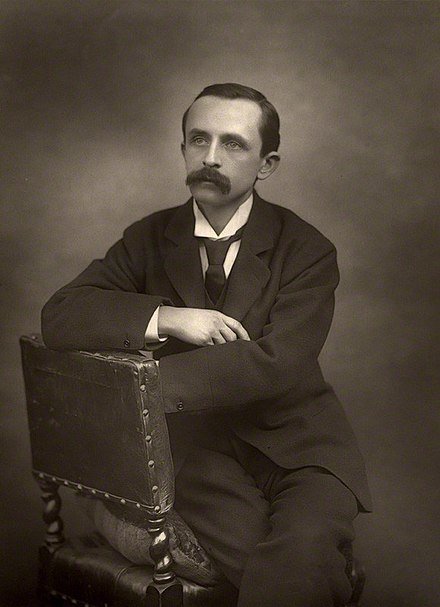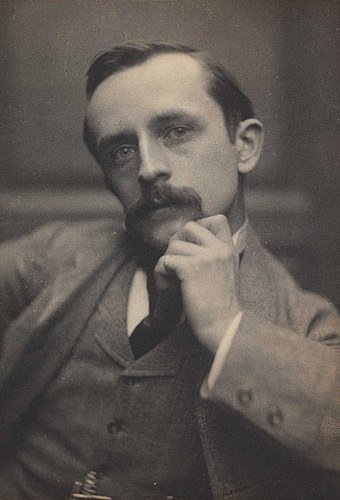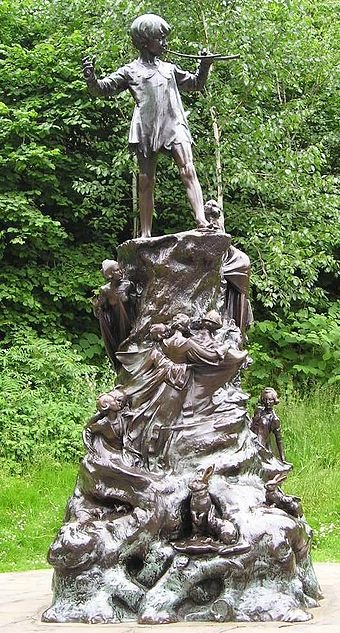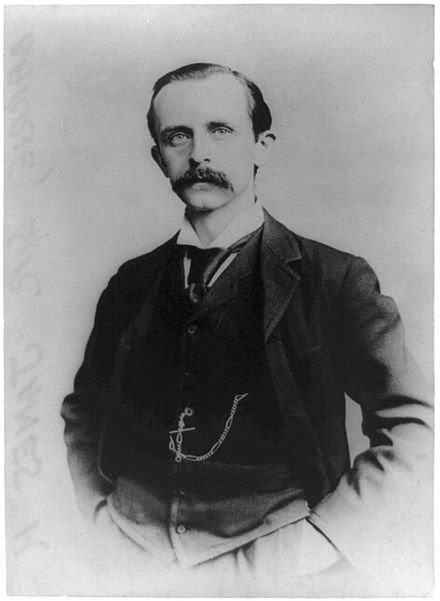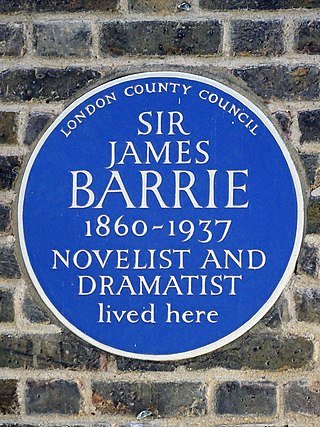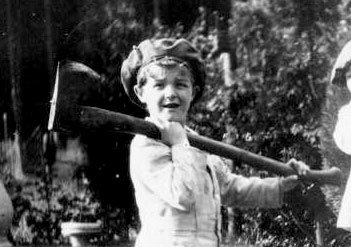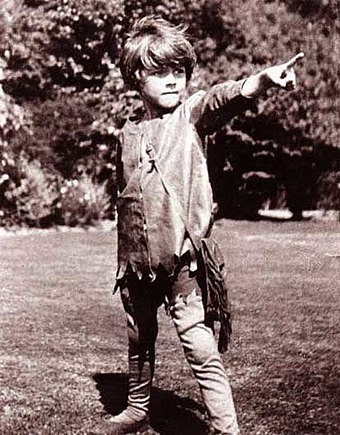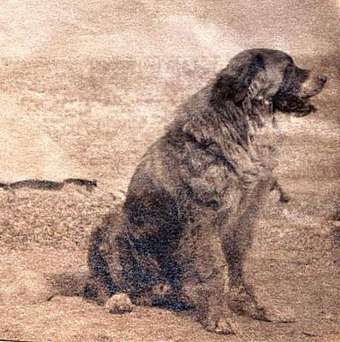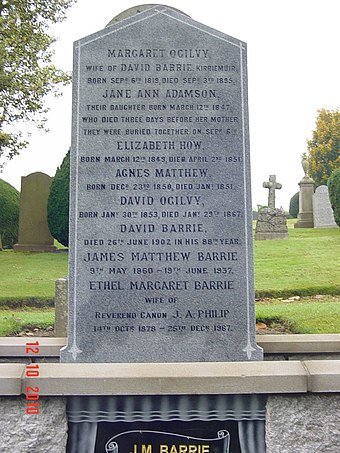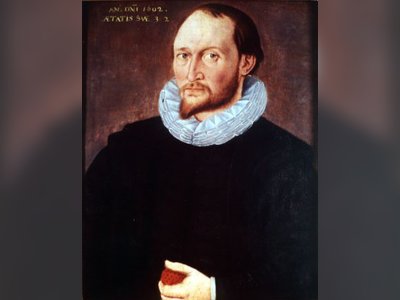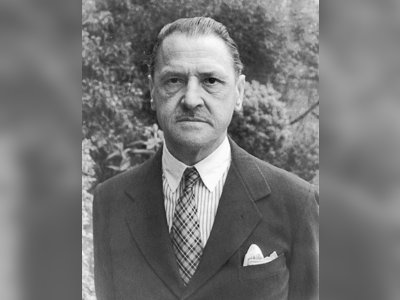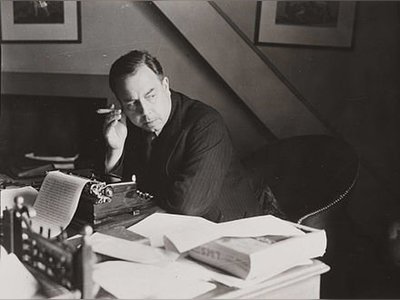British Heritage
Remember, Cherish, Learn.
beta
J. M. Barrie
Contribution of J. M. Barrie to British Heritage
Sir James Matthew Barrie, 1st Baronet, OM, was a Scottish novelist and playwright whose lasting legacy lies in the creation of the timeless character, Peter Pan. Born on May 9, 1860, in Kirriemuir, Angus, Barrie's literary genius and captivating storytelling captivated audiences, making him one of the most celebrated authors of his time. His contributions to British Heritage are marked by his iconic works, philanthropic endeavors, and lasting influence on popular culture.
One of Barrie's most significant and enduring contributions to British Heritage is the creation of Peter Pan, a character that has transcended generations and captured the hearts of millions worldwide. The origins of Peter Pan can be traced back to Barrie's encounters with the Llewelyn Davies boys, particularly George and Jack, whom he met in London's Kensington Gardens. Inspired by their youthful innocence and playful imaginations, Barrie crafted the tale of a baby boy who could fly and never grew up.
The enchanting adventures of Peter Pan and his companions in the magical world of Neverland were first introduced to the public in the 1902 adult novel "The Little White Bird." The character's popularity soared, leading to the premiere of "Peter Pan, or The Boy Who Wouldn't Grow Up" on December 27, 1904, at the Duke of York's Theatre in London's West End. The play's resounding success solidified Peter Pan's place as an iconic figure in British literature and theater.
Although Peter Pan became synonymous with Barrie's name, his literary contributions extended beyond this enchanting tale. Prior to Peter Pan's creation, Barrie had already established himself as a successful author and playwright with works like "Auld Licht Idylls" (1888), "A Window in Thrums" (1890), and "The Little Minister" (1891). He delved into the complexities of human relationships and social concerns through plays like "Quality Street" (1901) and "The Admirable Crichton" (1902).
His literary prowess was not limited to theatrical works; Barrie also authored novels, including "Peter and Wendy" (1911), an expansion of Peter Pan's story, and "Dear Brutus" (1917), which explored the concept of parallel worlds. Throughout his career, he displayed a keen understanding of human nature and a deep sense of empathy, which resonated with audiences of all ages.
Barrie's philanthropic efforts are an integral part of his contribution to British Heritage. In 1929, he made a generous and historic gesture by gifting the copyright of the Peter Pan works, including "The Little White Bird," "Peter Pan in Kensington Gardens," and "Peter and Wendy," to Great Ormond Street Hospital for Children in London. This act of kindness ensured that the hospital would benefit from the royalties of these beloved works, providing much-needed support for its medical endeavors.
The copyright gift remains an essential part of the hospital's funding, allowing it to continue its vital work in caring for sick children. To this day, Great Ormond Street Hospital remains grateful for Barrie's enduring philanthropic legacy, which has positively impacted the lives of countless children.
Barrie's literary achievements were intertwined with his rich friendships and associations with fellow authors and notable figures of the time. He frequented the company of esteemed writers like George Meredith, Robert Louis Stevenson, and H. G. Wells. He also developed close bonds with George Bernard Shaw, who regarded Barrie's works as thought-provoking entertainment for both children and adults.
His friendships extended beyond literary circles to include explorers like Joseph Thomson and Robert Falcon Scott, with whom he shared a close connection. Barrie's compassionate nature and engaging personality allowed him to connect with a wide range of individuals, from fellow authors to the young Princesses Elizabeth and Margaret, whom he entertained with his delightful stories.
Barrie's personal life was marked by meaningful relationships that left a lasting impact on him. His marriage to actress Mary Ansell faced challenges, and the couple eventually divorced in 1909. Despite the heartache, Barrie remained a devoted surrogate father figure to the Llewelyn Davies family, following the early deaths of both parents. His bond with the boys, particularly George and Jack, inspired the creation of Peter Pan and deepened his commitment to their well-being.
Tragedy struck Barrie when George was killed in action during World War I, and Michael drowned tragically in 1921. Despite these heartrending losses, Barrie continued to support the surviving Llewelyn Davies boys throughout their lives.
J. M. Barrie's legacy as a master storyteller and creator of Peter Pan endures through generations. His imaginative tales of adventure, exploration of human emotions, and keen observations of society continue to captivate readers and audiences around the world. His works have inspired numerous adaptations, including films, stage productions, and spin-off novels, ensuring that the spirit of Peter Pan and the magic of Neverland remain a beloved part of British cultural heritage.
Barrie's philanthropy, notably his gift of the Peter Pan works to Great Ormond Street Hospital, highlights his generous spirit and commitment to supporting children's welfare. His influence extends beyond literature, as he continues to
The Creation of Peter Pan: A Never-Ending Adventure
One of Barrie's most significant and enduring contributions to British Heritage is the creation of Peter Pan, a character that has transcended generations and captured the hearts of millions worldwide. The origins of Peter Pan can be traced back to Barrie's encounters with the Llewelyn Davies boys, particularly George and Jack, whom he met in London's Kensington Gardens. Inspired by their youthful innocence and playful imaginations, Barrie crafted the tale of a baby boy who could fly and never grew up.
The enchanting adventures of Peter Pan and his companions in the magical world of Neverland were first introduced to the public in the 1902 adult novel "The Little White Bird." The character's popularity soared, leading to the premiere of "Peter Pan, or The Boy Who Wouldn't Grow Up" on December 27, 1904, at the Duke of York's Theatre in London's West End. The play's resounding success solidified Peter Pan's place as an iconic figure in British literature and theater.
Beyond Peter Pan: A Multifaceted Literary Career
Although Peter Pan became synonymous with Barrie's name, his literary contributions extended beyond this enchanting tale. Prior to Peter Pan's creation, Barrie had already established himself as a successful author and playwright with works like "Auld Licht Idylls" (1888), "A Window in Thrums" (1890), and "The Little Minister" (1891). He delved into the complexities of human relationships and social concerns through plays like "Quality Street" (1901) and "The Admirable Crichton" (1902).
His literary prowess was not limited to theatrical works; Barrie also authored novels, including "Peter and Wendy" (1911), an expansion of Peter Pan's story, and "Dear Brutus" (1917), which explored the concept of parallel worlds. Throughout his career, he displayed a keen understanding of human nature and a deep sense of empathy, which resonated with audiences of all ages.
Philanthropy and Great Ormond Street Hospital
Barrie's philanthropic efforts are an integral part of his contribution to British Heritage. In 1929, he made a generous and historic gesture by gifting the copyright of the Peter Pan works, including "The Little White Bird," "Peter Pan in Kensington Gardens," and "Peter and Wendy," to Great Ormond Street Hospital for Children in London. This act of kindness ensured that the hospital would benefit from the royalties of these beloved works, providing much-needed support for its medical endeavors.
The copyright gift remains an essential part of the hospital's funding, allowing it to continue its vital work in caring for sick children. To this day, Great Ormond Street Hospital remains grateful for Barrie's enduring philanthropic legacy, which has positively impacted the lives of countless children.
Literary Circle and Influential Friendships
Barrie's literary achievements were intertwined with his rich friendships and associations with fellow authors and notable figures of the time. He frequented the company of esteemed writers like George Meredith, Robert Louis Stevenson, and H. G. Wells. He also developed close bonds with George Bernard Shaw, who regarded Barrie's works as thought-provoking entertainment for both children and adults.
His friendships extended beyond literary circles to include explorers like Joseph Thomson and Robert Falcon Scott, with whom he shared a close connection. Barrie's compassionate nature and engaging personality allowed him to connect with a wide range of individuals, from fellow authors to the young Princesses Elizabeth and Margaret, whom he entertained with his delightful stories.
Personal Life and Enduring Relationships
Barrie's personal life was marked by meaningful relationships that left a lasting impact on him. His marriage to actress Mary Ansell faced challenges, and the couple eventually divorced in 1909. Despite the heartache, Barrie remained a devoted surrogate father figure to the Llewelyn Davies family, following the early deaths of both parents. His bond with the boys, particularly George and Jack, inspired the creation of Peter Pan and deepened his commitment to their well-being.
Tragedy struck Barrie when George was killed in action during World War I, and Michael drowned tragically in 1921. Despite these heartrending losses, Barrie continued to support the surviving Llewelyn Davies boys throughout their lives.
Legacy and Literary Impact
J. M. Barrie's legacy as a master storyteller and creator of Peter Pan endures through generations. His imaginative tales of adventure, exploration of human emotions, and keen observations of society continue to captivate readers and audiences around the world. His works have inspired numerous adaptations, including films, stage productions, and spin-off novels, ensuring that the spirit of Peter Pan and the magic of Neverland remain a beloved part of British cultural heritage.
Barrie's philanthropy, notably his gift of the Peter Pan works to Great Ormond Street Hospital, highlights his generous spirit and commitment to supporting children's welfare. His influence extends beyond literature, as he continues to
- J. M. Barrieen.wikipedia.org
